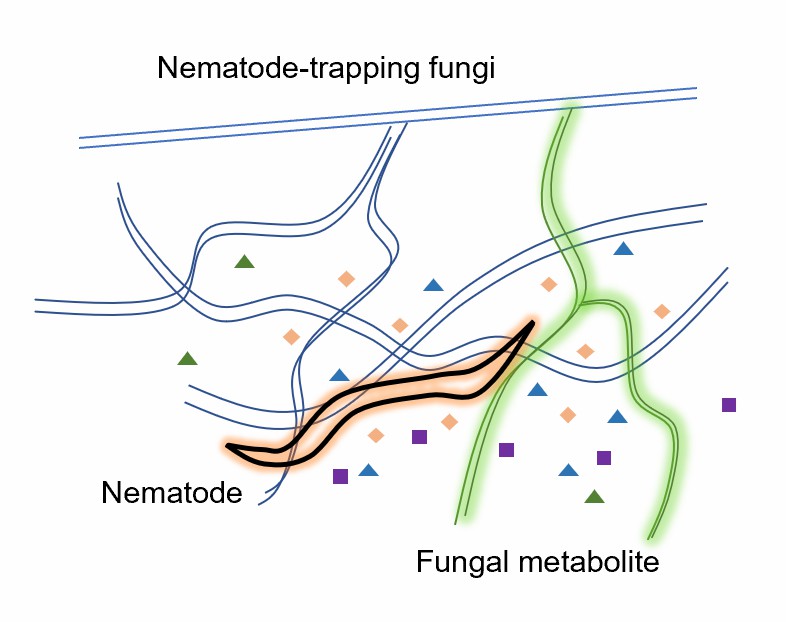Nematodes are a significant component of soil biomass and play an important role in soil ecological processes. They are involved in many interactions affecting crop plants, but most nematodes present in the soil, c. 70%, do not directly feed on plant roots. However, the plant root provides the resource upon which several nematode trophic groups are ultimately dependent. Bacterial feeders, fungivores, omnivores, and predators, and plant parasites, are attracted by root exudates into the rhizosphere, where they interact with one another.
Lifeasible possesses enriched experience in plant science, performing various strategies to help our clients analyze nematode interactions with other pathogens. Our scientists and expert technicians have been dedicated to customizing your program to meet your requirements.
 Fig.1 Nematode-trapping fungi produce diverse metabolites.
Fig.1 Nematode-trapping fungi produce diverse metabolites.
Lifeasible is pleased to share our cutting-edge technology and extensive expertise in plant science to facilitate our clients' research and project development. We can offer high-quality customized services by adjusting protocols to meet specific requirements. If you are interested in our services or have any questions, please feel free to contact us or make an online inquiry.
Lifeasible has established a one-stop service platform for plants. In addition to obtaining customized solutions for plant genetic engineering, customers can also conduct follow-up analysis and research on plants through our analysis platform. The analytical services we provide include but are not limited to the following:
Get Latest Lifeasible News and Updates Directly to Your Inbox
Adaptive Evolutionary Mechanism of Plants
February 28, 2025
Unraveling Cotton Development: Insights from Multi-Omics Studies
February 27, 2025